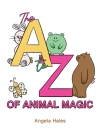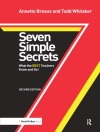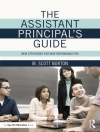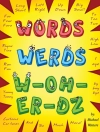‘Parallel Curriculum Units for Mathematics, Grades 6–12 combines four essential models for improving student understanding and growth in mathematics. The lessons provided in the textbook build on students′ abilities, so they can see all parts of a math problem and are able to tackle and understand it at various levels.’
—Elizabeth Alvarez, Assistant Principal
John C. Dore Elementary, Chicago, IL
Maximize your mathematics curriculum to challenge all students
This collection of lessons, building on material presented in the best-selling The Parallel Curriculum, is written by experienced teachers who provide innovative and challenging learning opportunities for students in Grades 6–12. The four sample units focus on fractions, linear programming, geometry, and quadratic relationships. The authors provide user-friendly methods for creating high-quality lessons and demonstrate how to differentiate these lessons for the benefit of all students. Included are field-tested and standards-based strategies that guide students through:
- Understanding secondary-level mathematics concepts
- Discovering connections between mathematics and other subjects
- Developing critical thinking skills
- Connecting mathematics learning to society through the study of real-world data, proportional reasoning, and problem solving
Each unit includes subject matter background, a content framework, study components, teacher reflections, and sample lessons. Learn from the experts and enhance your mathematics curriculum with these proven strategies.
Table of Content
List of Resources
About the Editors
About the Contributors
Introduction to the Parallel Curriculum Model
1. Equivalent Fractions and Partitioning Sets: Keys to Success in Higher-Level Mathematics, Grades 6–7 – Helen Weingart
2. Linear Programming: A Key to Decision Making, Grades 9–10 – Marianne Cavanaugh
3. Similarity: A Study in Relationships, Grade 10 – Amy J. Germundson
4. Quadratic Relationships: A Middle School Unit in Algebra, Grade 8 – Carrie Heaney
Index
About the author
Jeanne H. Purcell is the consultant to the Connecticut State Department of Education for gifted and talented education. She is also director of UConn Mentor Connection, a nationally recognized summer mentorship program for talented teenagers that is part of the NEAG Center for Talent Development at the University of Connecticut. Prior to her work at the State Department of Connecticut, she was an administrator for Rocky Hill Public Schools (CT); a program specialist with the National Research Center on the Gifted and Talented, where she worked collaboratively with other researchers on national issues related to high-achieving young people; an instructor of Teaching the Talented, a graduate-level program in gifted education; and a staff developer to school districts across the country and Canada. She has been an English teacher, community service coordinator, and teacher of the gifted, K-12, for 18 years in Connecticut school districts and has published many articles that have appeared in Educational Leadership, Gifted Child Quarterly, Roeper Review, Educational and Psychological Measurement, National Association of Secondary School Principals’ Bulletin, Our Children: The National PTA Magazine, Parenting for High Potential, and Journal for the Education of the Gifted. She is active in the National Association for Gifted Children (NAGC) and serves on the Awards Committee and the Curriculum Committee of NAGC, for which she is the co-chair for the annual Curriculum Awards Competition.












